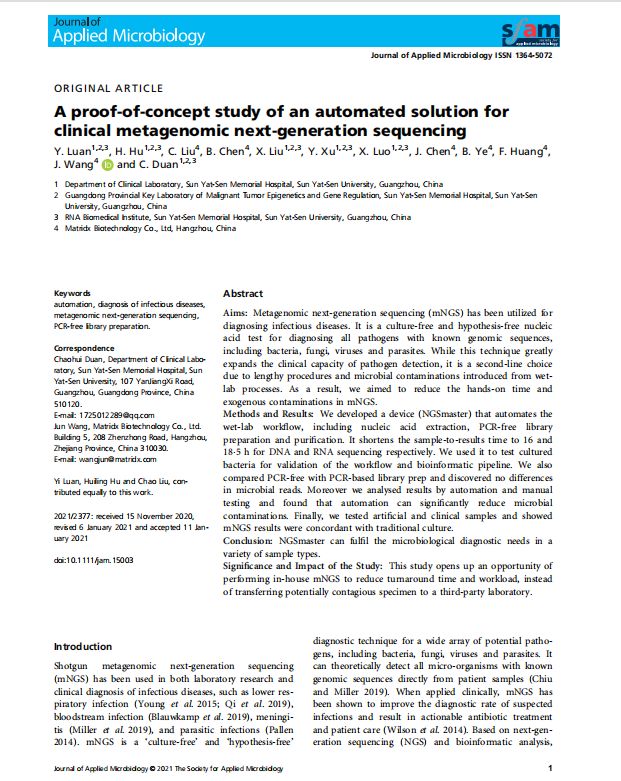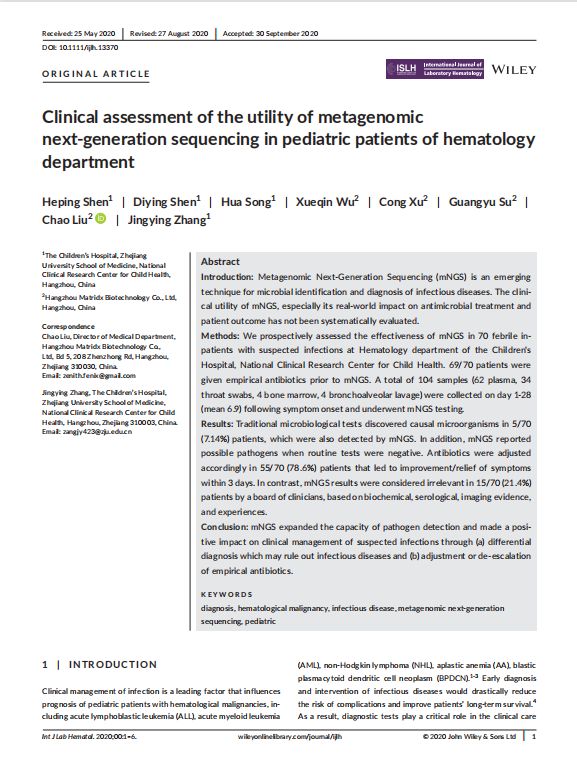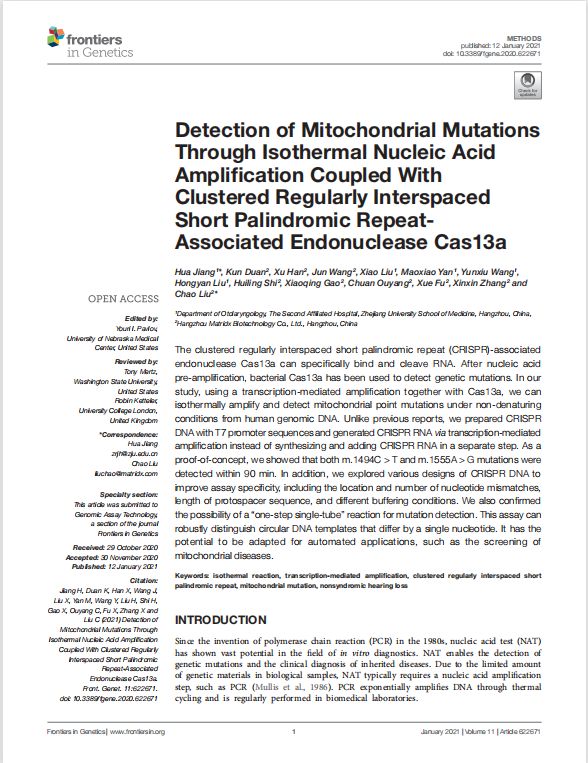Clinical Research
We have signed a scientific research cooperation agreement with Peking Union Medical College Hospital, and built MatriDx Demo laboratory to carry out clinical application research of mNGS;
We have signed the agreement of "Infectious Disease Precision Medicine Translational Research Center" with the Antibiotic Research Institute of Huashan Hospital of Fudan University;
We have signed a strategic cooperation agreement on "Clinical Research and Transformation Application" with Guangzhou Institute of Respiratory Health which led by Academician Mr. Zhong Nanshan.
We are carrying out more than 40 scientific research cooperation projects which coversimportant topics such as big data, infection prediction, artificial intelligence, infection/colonization determination, and many high-level SCI studies have been published.
Key Publications
01. A proof‐of‐concept study of an automated solution for clinical metagenomic next‐generation sequencing
MatriDx has completed a study of automated solution for clinical mNGS in Sun Yat-Sen Memorial Hospital,?mNGS is of clinical value for the diagnosis of microbial infections in critically ill and immunocompromised patients. Short TAT, ease of operation and cost-effectiveness are important factors to consider before using mNGS as a first-line microbiological test. The sample-in, library out automation makes mNGS more convenient to perform in-house. More importantly, automation could reduce exogenous microbial contamination and make the results more reliable and easier to interpret.
02.Clinical Assessment of the Utility of Metagenomic Next-Generation Sequencing in Pediatric Patients of Hematology Department
The study confirms that mNGS can benefit pediatric hematological patients in the following scenarios: (a) patients with suspected infection are in critical condition and effective treatment is urgent; (b) immunocompromised patients who are more prone to polymicrobial infections; (c) routine microbiological tests are negative or inconclusive while empirical treatment is unsuccessful; (d) fever of unknown origin in which differential diagnosis is needed to confirm or rule out infectious diseases.
03.Detection of Mitochondrial Mutations Through Isothermal Nucleic Acid Amplification Coupled With Clustered Regularly Interspaced Short Palindromic Repeat-Associated Endonuclease Cas13a
The study confirms that using a transcription-mediated amplification together with Cas13a, MatriDx’s scientists can isothermally amplify and detect mitochondrial point mutations under non-denaturing conditions from human genomic DNA.
MatriDx’s scientists developed an assay utilizing TMA and CRISPR-Cas13a to isothermally amplify and detect targeted sequences in circular dsDNA templates, such as plasmid and mitochondria. This assay can be performed in one step in a single tube without the need for a thermal cycler. CNAD can robustly distinguish templates that differ by a single nucleotide and may be suitable for automatic mutation screenings.




